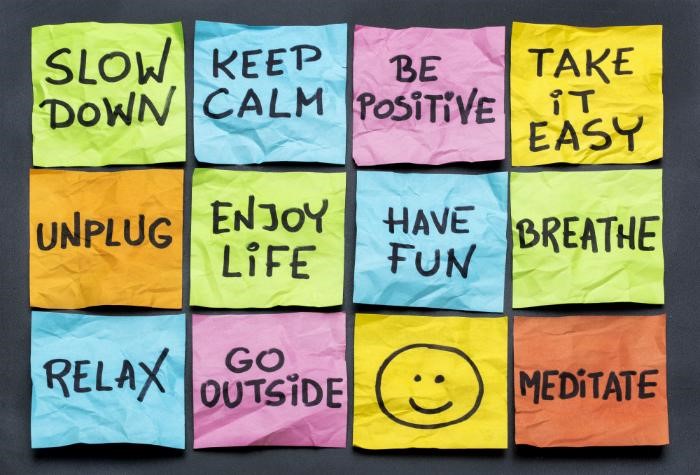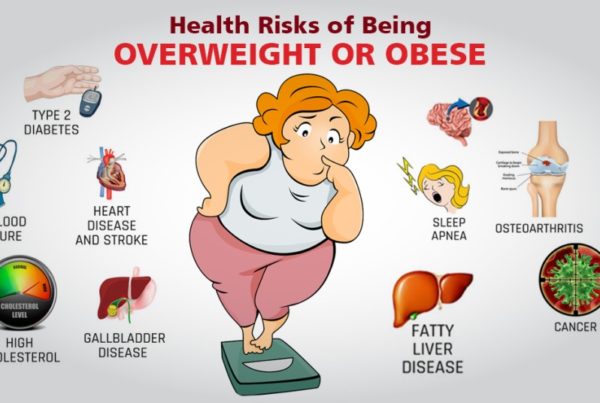
In the era of globalization and in our hectic world, to disconnect or unplug yourself from the routine, especially from work, seems to be a difficult task. We can all manage stressful lives for some time, but in the long run this accumulation can turns into anxiety which comes with concerning effects on our health.
When we’re stressed, hormones like cortisol flood our systems, our heart pounds faster, muscles tighten, blood pressure rises and breath quickens. You might not even realize that your body may exist in a heightened state of stress most of the time, which can lead to serious health problems like hypertension and headaches, mental health concerns (depression, anxiety disorders), asthma, irritable bowel syndrome, insomnia, etc.
But don’t worry, there’s good news! Just as our mind and body have a stress response, it also has a relaxation response, so we have to learn how to educate our body to relax, unwind and destress for a healthier life.
There are lots of ways to relax and some are designed to relax our mind and some to relax our body. But because of the way the mind and body are connected, many relaxation methods work on both.
Try to follow our 10 tips to learn to feel more relaxed in your daily life.
Breathe
Yes breathe, take a deep breath in. Now let it out… You may already feel a difference. Some simple breathing exercises can make a big difference if you make them part of your regular routine. The “pranayama,” or “life force,” is at the center of every yoga practice because it’s considered the source of energy and life for all living beings. Breathing slowly, deeply has been proven to reduce blood pressure, reduce tension and relieve stress.
Meditate
The popularity of meditation is increasing as more people discover its benefits. With meditation you will train your mind to focus and redirect your thoughts. With practice and experience, you will learn to create a clearing of calm and tranquility that you can enter into within seconds whenever you feel the need. It has been proved that meditation reduces heart disease risk factors, improves mental and emotional health, and rewires your brain for happiness, peace and success.
Surround yourself with nature
Go for a walk, even 10 minutes and consider walking in a park or other green space. If you live in a city, it’s not always easy to find a town that offers the chance to take a walk in a park but new studies suggest that we should at least try to find a way to absorb nature every day. Another option is to buy yourself some plants for your house or your office space! Being around plants can induce your relaxation response and decrease the blood pressure.
Visualize
Successful people all over the world use visualization to spawn dreams into reality realms. Visualization is just concentrated dreaming. It’s mind over matter. It’s constructing life from a space inside our brains. Positive visualization can feel like a hypnotherapy session: you are the one accessing your creative power! It has been proven that implementing visualization in your daily routine can help you build courage, fight negativity, bolster creativity and gather energies.
Take a break from tech
Step away from screens: TV, smartphone, computers, tablets, etc. Periodically unplugging from technology may be one of the healthiest things you can do for yourself.
When on vacation try to really be “on vacation” that means no work emails or cell phones. We know it can be challenging… But we assure you that the world will not stop turning if you are really “off” for some days. Reconnect with real people, focus on the moment and learn to “just be”.
Get a massage
If you tend to think of massage as only a way to pamper yourself, you might realize that it’s much more than a momentary feel-good treatment. Getting a massage is a great way to free yourself of tension and relax. Studies of the benefits of massage demonstrate that it is an effective treatment for reducing stress, pain and muscle tension. In fact, massage can help you maintain physical, mental and emotional well-being, especially when it is part of your regular wellness routine.
Eat well
Our moods and our foods are closely linked. That’s why when you feel stressed out you automatically reach for your comfort food. Building a healthy food prep habit into your daily or weekly routine can greatly improve your overall diet, and eventually lead to reduced stress levels. There is also a growing body of research indicating a strong link between digestive health and the brain. Healthy eating improves your energy, makes you more productive, and improves your physical and mind health.
Sleep well
A good night’s sleep allows you to tackle the day’s stress easier. You should not underestimate the importance of sleep in regulating mood and stress response. Following a regular sleep routine calms and restores the body, improves concentration, regulates mood, and sharpens judgment and decision-making. Make sure that you get restful and restorative sleep each and every night by having a cool, dark, and quiet environment. You are a better problem solver and are better able to cope with stress when you’re well-rested.
Laugh
Laughter is strong medicine! Laughter makes you feel good! When you start to laugh, it doesn’t just lighten your load mentally, it actually induces physical changes in your body. It strengthens your immune system, boosts mood, diminishes pain, and protects you from the damaging effects of stress. And this positive feeling remains with you even after the laughter subsides. Let’s start now: turn the corners of your mouth up into a smile and then give a laugh, even if it feels a little forced. Do you feel more relaxed? That’s the natural wonder of laughing at work.
Practice Yoga
Yoga is very effective for stress relief because, aside from the physical benefits that yoga brings, it encourages a good mood, an increase in mindfulness, and a healthy dose of self-compassion. The body becomes relaxed and energized at the same time. With regular yoga practice, your chronic daytime stress hormone levels drop and your heart rate variability increases, which is measure of your ability to tolerate stress. There are various styles of yoga, some are moving through the poses quickly while other styles are more relaxing, you just need to find what works best for you!
At Training Paradise Phuket, we have setup a new Program called “Active & Stress Free”. Today, we know how it’s important for health to take some me-time and learn how to disconnect, distress and unwind.
For those of you who need to escape your daily life, our individualized program will clear your head, release tension, change your eating patterns, and you will come out stronger and recharged. We curated a fitness program with circuit training, boxing, yoga classes, meditation, Reiki, and outdoor activities to enhance your fitness and health levels, as well as balance the body and mind.
Reference
“Stress and Sleep”. American Psychological Association.
Javnbakht M, Hejazi Kenari R, Ghasemi M. Effects of yoga on depression and anxiety of women. Complement Ther Clin Pract. 2009;15:102–4.
Bennett MP, Lengacher C. Humor, and Laughter May Influence Health: III. Laughter and Health Outcomes.
Fateme Nazari, Mojtaba Mirzamohamadi, and Hojatollah Yousefi. The effect of massage therapy on occupational stress of Intensive Care Unit nurses
MaryCarol R. Hunter, Brenda W. Gillespie, Sophie Yu-Pu Chen. Urban Nature Experiences Reduce Stress in the Context of Daily Life Based on Salivary Biomarkers. Frontiers in Psychology, 2019; 10 DOI.
Madhav Goyal, MD, MPH; Sonal Singh, MD, MPH; Erica M. S. Sibinga, MD, MHS. Meditation Programs for Psychological Stress and Well-beingA Systematic Review and Meta-analysis
Mi Hye Lee, Dong-Hee Kim, and Hak Sun Yu. The Effect of Guided Imagery on Stress and Fatigue in Patients with Thyroid Cancer Undergoing Radioactive Iodine Therapy





